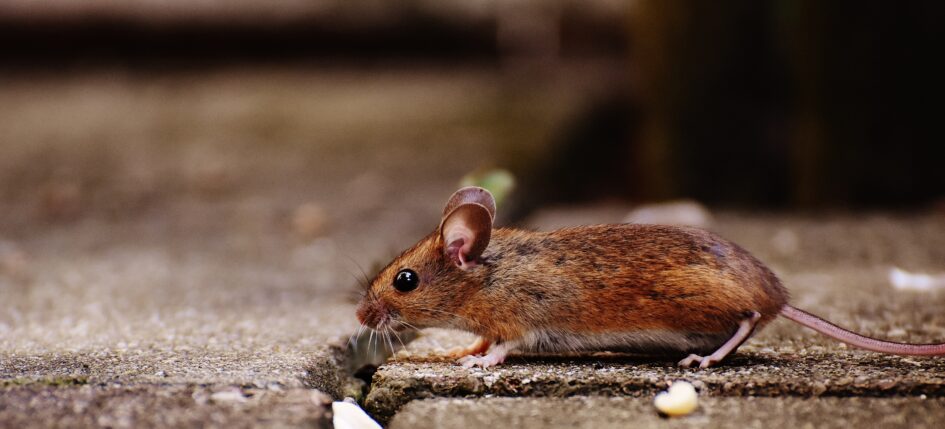As temperatures continue to warm up, more people will be out and about seeking retail therapy and your business needs to be pest-free. From restaurants to markets, food shoppers judge stores for various reasons, including their selection of fresh produce, food quality, overall product appeal, and shopping experience. No doubt you are working hard to entice customers by providing a wide array of products in your storefront. It’s these very products that may come with pests or attract pests in search of a food source. There’s nothing worse than ruining a great customer experience with a cockroach or mouse scurrying across the floor, so consider pest management as part of your spring cleaning program.
An Integrated Pest Management (IPM) program can help protect your store or restaurant from the threats pests pose to public health, including food safety and customer satisfaction.
IPM in grocery stores and restaurants focuses on removing or minimizing the elements that attract pests to the building. Namely, pests need access to food, water, shelter, and comfortable temperatures, so eliminating or modifying these elements will prevent infestations. With regular, practiced sanitation and a properly maintained facility, you can keep pests out and minimize the need for chemical treatments.
Working with a pest management professional is the first step to pest prevention by designing and implementing the following IPM techniques:
- Develop and follow a comprehensive, written sanitation program to eliminate food, water, breeding, and shelter sources for pests in all food preparation areas including the deli, bakery, and meat processing and packaging areas.
- Immediately clean all spills and wipe down equipment daily. Use organic cleaners in drains to remove the grease and grime that can feed and act as a breeding ground for small flies such as drain flies and phorid flies, roaches, and other pests. Regularly clean dead spaces or voids in food prep equipment or machines, hard-to-reach areas such as under prep counters, cart wheels, behind appliances, and grease traps. These dead ends provide shelter and breeding grounds for pests because they tend to go unnoticed.
- Keep storage areas dry, cool, and organized. Store all products on wire-backed shelves off the floor and away from the wall. In addition, if products are packed in bulk, store them in closed containers to prevent spills and pest attraction. Use products on a first in, first out (FIFO) basis and immediately discard any deteriorated or spoiled product. If products are stored on skids or pallets on the floor, maintain an inspection aisle between the pallets and perimeter spaces along the walls to allow for effective housekeeping and pest monitoring. Don’t forget to inspect incoming shipments for pest activity before you accept them.
- Line and seal all trashcans and remove trash daily from inside the store. Position dumpsters as far away from the building as possible and clean and rotate them regularly. Also, place them on concrete pads instead of directly on the ground. This will stop rodents from burrowing underneath, as well as prevent flies from breeding.
- Empty recycling bins on a weekly basis. This includes hosing them down to prevent fly breeding.
- Keep all doors shut when not in use. Install door sweeps on the bottoms of doors and weather stripping around entrances to provide a secure seal. In areas of heavy traffic, such as shipping and receiving docks, consider using plastic strip doors or air curtains as an additional barrier to pests. Have a professional check to ensure the air curtain is installed properly and have it serviced regularly to ensure maximum efficiency.
- Seal or screen all openings, gaps, and cracks in the exterior of the building with rodent-resistant sealant to prevent pest entry. Pay special attention to areas around exterior utility penetrations.
- Monitor regularly for signs of pest infestations, such as droppings, insect frass, trails, webbing, damaged product, live or dead pests, and sounds. Notify your pest management professional immediately of any pest sightings.
It’s also important to establish an open line of communication that encourages all employees to report pest sightings immediately. This will help prevent pest activity in areas such as breakrooms, the kitchen, or the dining area. Fostering an open line of communication will help restaurateurs and retailers get ahead of any pest issues and related health and safety threats. Remember, employees can bring pests into the restaurant on their belongings from home, so having workers inspect their residences for pest activity regularly is a proactive step in preventing infestations from outside sources. It’s also important that they know about pest sighting reports and are encouraged to help prevent unwanted visits.
When it comes to pest control, prevention is key to help avoid a costly infestation. Since each situation is different, it’s vital to have an ongoing IPM program and to consistently monitor the process. With a bit of knowledge, effort, and time you can help prevent pests from becoming the primary guests in your store or restaurant.
Alice Sinia, Ph.D. is the quality assurance manager of Regulatory/Lab Services for Orkin Canada, focusing on government regulations pertaining to the pest control industry. For more information, email Alice Sinia at asinia@orkincanada.com or visit orkincanada.ca.










